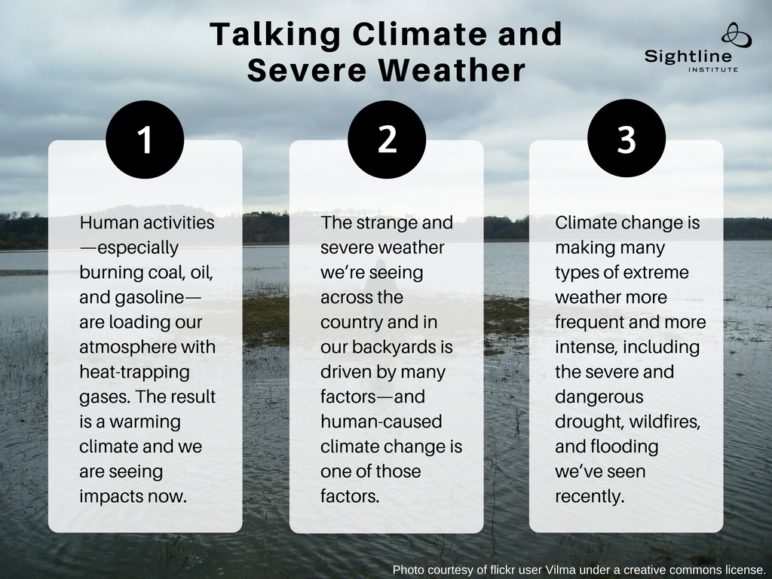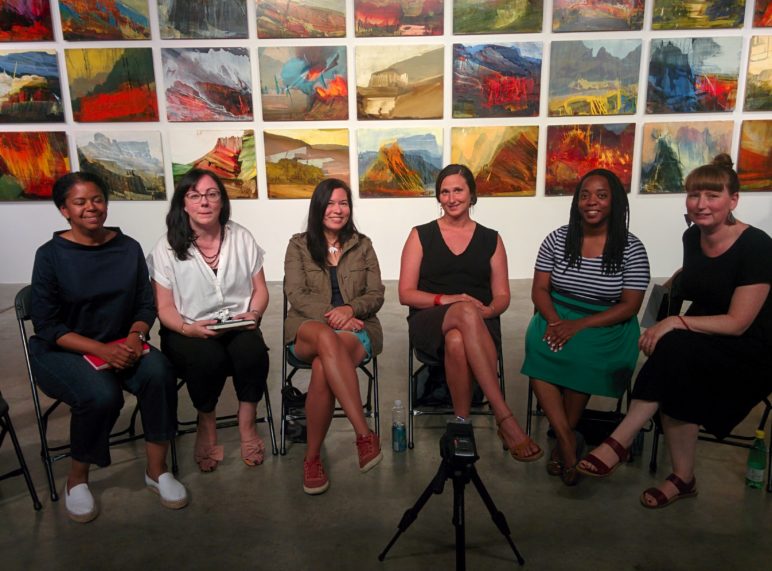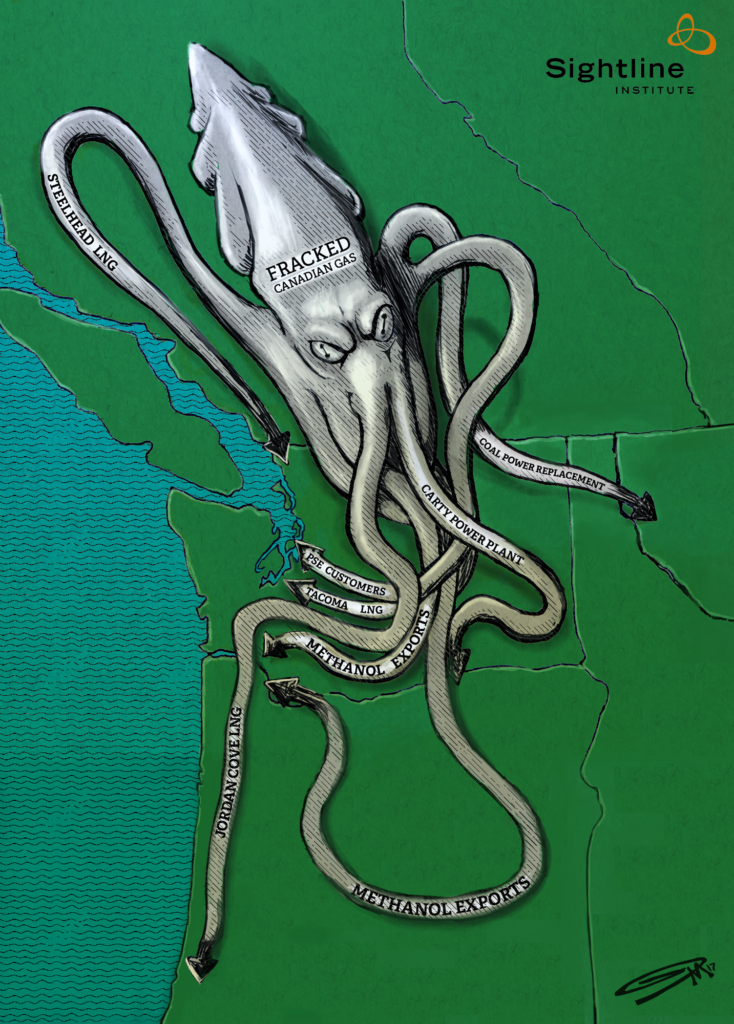As our corner of the planet tips away from the sun and the rains we missed this summer return, Sightline’s Thin Green Line team is hitting the books.
Since our last update to you in early August, we have been studying the coal, oil, and gas industries with an eye toward obstructing their plans to turn the Northwest into a superhighway of fossil fuels.
Here’s what we’ve been up to.
When late-summer storms devastated the Caribbean, we turned our attention beyond the Northwest. A former Gulf Coast resident, senior researcher Tarika Powell took a hard look at the aftermath of Hurricane Harvey, finding that the wreckage holds valuable lessons for fossil fuel infrastructure in the Northwest. She also teamed up with communications strategist Anna Fahey to co-author a piece of messaging guidance: in a hurricane’s wake, how to talk about climate and weather. Anna then went on to publish a deeper analysis on the lessons for climate understanding and partisanship in “Do Hurricanes Wake Us Up?”

Tarika went on the road and took the stage around the region. In Portland, she joined the “We Are Water” event at the Disjecta Gallery to explore natural resource protection alongside indigenous women artists from around the region. She returned to the Rose City for a clean energy conference at Lewis & Clark College where she moderated a panel with US Senator Jeff Merkley. In Thurston County, Washington she appeared on community television together with Sightline’s Margaret Morales to talk about how the Northwest can strengthen democracy and protect communities from fossil fuel infrastructure. And in Tacoma, we were especially proud that Tarika was invited to stand alongside tribal leaders for “Kwel’Hoy: We Draw the Line,” the Lummi Nation’s Totem Pole Journey, where she spoke about the imperatives of stopping new fossil fuel infrastructure. Finally, in Seattle, she joined a panel debate with the gas industry at Northwest Energy Coalition’s renewable energy conference.
Tarika also published a handy answer to “how much of your gas is fracked?” a question we get asked all the time at Sightline.

Meanwhile, Clark Williams-Derry, our director of energy finance, has been burrowing into the financials of major oil and gas companies. He took a break just long enough to filet Cloud Peak Energy for losing $160 million over 11 consecutive quarters of rather modest Northwest coal exports by way of a terminal in British Columbia. Additionally, Clark and I teamed up to write an obituary for the last of the region’s new coal export terminal proposals, the giant at Longview we’ve been opposing for more than seven year at last may finally have keeled over.
I wrote a bit about oil too, dissecting the latest state and federal figures on crude-by-rail shipments to the Northwest. More importantly, I examined the pernicious influence of oil money in state politics as industry backers try desperately to get their projects approved. That research was featured on OPB, landed me a spot on “To the Point,” and helped inform an hour-long session on KBOO. And I spent several evenings helping support indigenous Canadian opposition to Kinder Morgan’s Trans Mountain Pipeline expansion, keynoting Pull Together events in Port Townsend, Port Angeles, West Seattle, and Seattle’s University District.
Working with illustrator Gavin MacPherson, I tried my hand at a bit of graphic storytelling. We depicted the common beast behind the various kraken-like tentacles of Northwest fracked gas projects. I gave talks about one of these tentacles, a huge gas-to-methanol refinery proposal on the Columbia River, at events in SeaTac and Redmond.

I also wrote about the need for more public comment on a petrochemical expansion in Anacortes and about initiating public engagement with a big gas-to-fertilizer project in Longview. And on a more positive note, I featured a Washington coastal planning effort that could forestall further conflicts like these.
Preventing these fights before they begin is the emerging work before us now. Together with an array of committed allies in Tacoma, we’re pushing for reform that would preserve working industry in the port and boost the city’s economic prospects by eliminating the possibility for fossil fuel expansions of any kind. Our recommendations won unanimous support from the Tacoma Planning Commission, but we now face tough industry-backed opposition as the city council weighs a temporary moratorium on coal, oil, and gas projects while the city takes up a more comprehensive review of its land use laws.
The Thin Green Line movement in Tacoma, a city that was formerly defined by the industrial pollution of refineries and smelters, is testament to the great power of the community we are so proud to support. It is made up of the people who have faith that the future can be unlike the past and that the history of this region is yet ours to write. In this month of leaden clouds, it puts me in mind of poet Denise Levertov who wrote of the Northwest, “Grey is the price of neighboring with eagles, of knowing a mountain’s vast presence, seen or unseen.”
Seen or unseen, we are grateful to everyone working with us to clear a path to a sustainable Northwest.
[list_signup_button button_text=”Like what you|apos;re reading? Get our Thin Green Line updates here.” form_title=”Fighting Fossil Fuels” align=”center” color=”orange”]


Comments are closed.